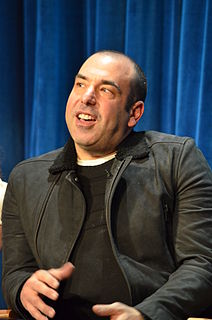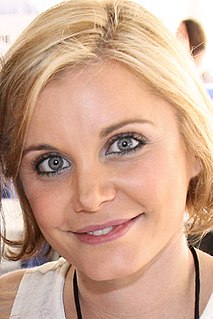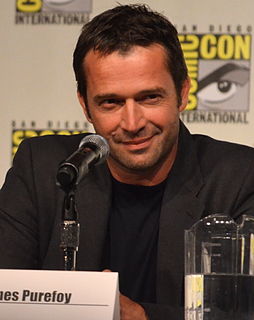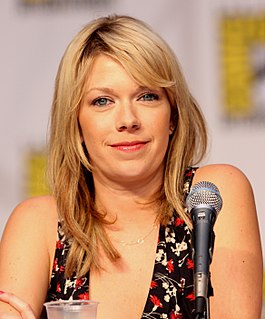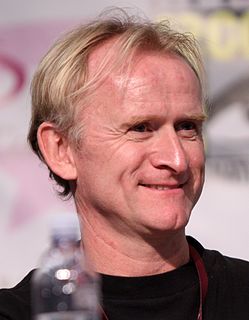A Quote by Rick Moody
I didn't know how to kill off a character unless I was able, as a narrator, to get really complicated. Because it was a big deal. I'd never killed a character before.
Related Quotes
Green Arrow was a very complicated character to take on because he has archaic weaponry. Catwoman, I think is more of a simple archetype to grasp, so it will be about nuance. But I think you need three or four issues before you say, 'Ah ha! Now I really know how to write this character!' You're carrying them around with you.
It's nice to be able to explore both sides of my personality. I definitely relate more to Debbie, my character on The Grinder. But it's really nice because I get to play a character who's down on her luck and kinda slipping off the edge in It's Always Sunny, while at the same time getting to play this character who's a mom and holding it together on The Grinder.
And, for any performer, to be able to go deep into character is fantastic. In film you only get to do that if you're the leading character. But in television you get 18 hours to really test the audience and take them to the edge of how far they will go with this character. I can step over this line and I love that.
When you're no longer seeing yourself, in some ways. You're as close to being as you can be.I suppose that's consistent with the moment that the mind actually turns off, and is no longer questioning what you're doing. When the questions stop, that's when the real acting takes over. And trying to get to the point where the questions stop, "Would I do this? How do I feel about that as a character?" When those stop, and it's just doing X, Y, and zed, because that's what you'd do as this character, because you're inside this character somehow - that's when it really kicks off.
In novels you're able to occupy character's internal thoughts and it's really hard to do in a film or a TV show. When you're reading a character's thoughts or when it's in first person, you're reading kind of their own story, so you have the opportunity to see what makes that character complex or complicated. And to me that's what the whole point of fiction is.
I learned a lot from Dick Wolf. I'll always remember playing that character because it was such a good character. It was great to be able to be a character like that for television. I think the thing that I'll bring from the whole experience, the whole 10 years, is I had never been interested in the television business before.
The joy of 'The X-files' is how it plays on so many different realities never knowing what is the truth and what is the deception. So my approach to my character has always been that we are alive and have always been alive and were never 'killed off' but held a fake funeral in 'Jump the Shark' to get the heat off of us.
The [character] that I was able to crawl into the most was Lilo from Lilo & Stitch. This was sort of a cartoony-looking girl, but her problems were completely real. Her funky world that she createdI mean, you know kids like that. It was very honest and genuine and I wanted to do an honest job, so I thought about the character a lot before I animated it. I really got into the character, where [I] almost felt that pain that she had. The loss of the parents - you need to feel all that. That was a big learning experience for me.

